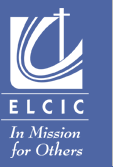Subject: The United Nations Global Goals for Sustainable Development
Moved By: The Rt. Rev. Jane Alexander
Seconded By: The Rev. Canon Bill Mous
Be it resolved that this General Synod:
- Welcome the new Global Goals for Sustainable Development which aim to end poverty, protect the planet, and pursue the common good;
- Encourage theological engagement with the goals, and missional commitment to their achievement in concert with the Five Marks of Mission of the Anglican Communion;
- Encourage the Anglican Church of Canada and the Primate’s World Relief and Development Fund to develop and promote educational and theological resources to raise awareness of the sustainable development goals among Anglican parishes and dioceses in Canada; and
- Encourage each diocese, through its synod, to assess and increase its involvement in projects supporting the Sustainable Development Goals and encourage parishes to do likewise as it determines which Sustainable Development Goals are most applicable to their current missional work.
Source: Creation Matters Working Group
Submitted By: Public Witness for Social and Ecological Justice Coordinating Committee
Does this motion contain within it any financial implications? Yes No
If yes, has the General Synod Expenditures Committee considered the implications? Yes No
EXPLANATORY NOTE/BACKGROUND
The Sustainable Development Goals (SDGs), otherwise known as the Global Goals, are a universal call to action to end poverty, protect the planet and ensure that all people enjoy peace and prosperity.
These 17 Goals build on the successes of the Millennium Development Goals.
The SDGs work in the spirit of partnership and pragmatism to make the right choices now to improve life, in a sustainable way, for future generations. They provide clear guidelines and targets for all countries to adopt in accordance with their own priorities and the environmental challenges of the world at large. The SDGs are an inclusive agenda. They tackle the root causes of poverty and unite us together to make a positive change for both people and planet.
Sustainable Development Goals
- End poverty in all its forms everywhere.
- End hunger, achieve food security and improved nutrition and promote sustainable agriculture.
- Ensure healthy lives and promote well-being for all at all ages.
- Ensure inclusive and equitable quality education and promote lifelong learning opportunities for all.
- Achieve gender equality and empower all women and girls.
- Ensure availability and sustainable management of water and sanitation for all.
- Ensure access to affordable, reliable, sustainable and modern energy for all.
- Promote sustained, inclusive and sustainable economic growth, full and productive employment and decent work for all.
- Build resilient infrastructure, promote inclusive and sustainable industrialization and foster innovation.
- Reduce inequality within and among countries.
- Make cities and human settlements inclusive, safe, resilient and sustainable.
- Ensure sustainable consumption and production patterns.
- Take urgent action to combat climate change and its impacts.
- Conserve and sustainably use the oceans, seas and marine resources for sustainable development.
- Protect, restore and promote sustainable use of terrestrial ecosystems, sustainably manage forests, combat desertification, and halt and reverse land degradation and halt biodiversity loss.
- Promote peaceful and inclusive societies for sustainable development, provide access to justice for all and build effective, accountable and inclusive institutions at all levels.
- Strengthen the means of implementation and revitalize the global partnership for sustainable development.
https://sustainabledevelopment.un.org/sdgs
PROCEDURE FOR ADOPTION (G)
In the normal course, an ordinary motion must be passed by a majority of the members of General Synod present and voting together. Six members of General Synod may, prior to the question being put, require a vote by Orders, with a majority of each Order being necessary to pass.
If a question passes on a Vote by Orders, any six members (two from each of three different dioceses) may immediately before the next item of business require a vote to be taken by dioceses. A motion passes if a majority (or a tie) of dioceses vote in favour.
Source: Sections 4 and 5 of the Declaration of Principles and sections 18, 19 and 20 of the Rules of Order and Procedure.


